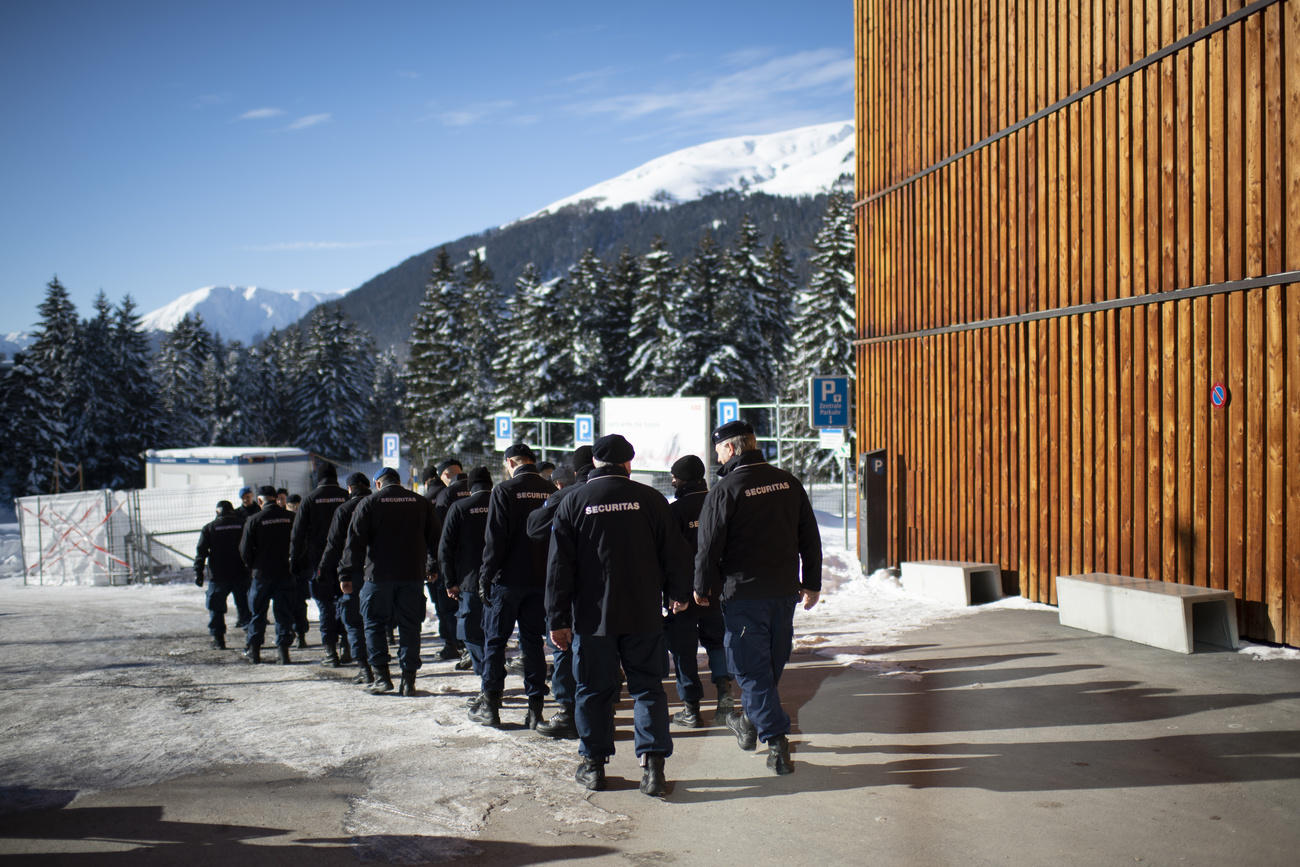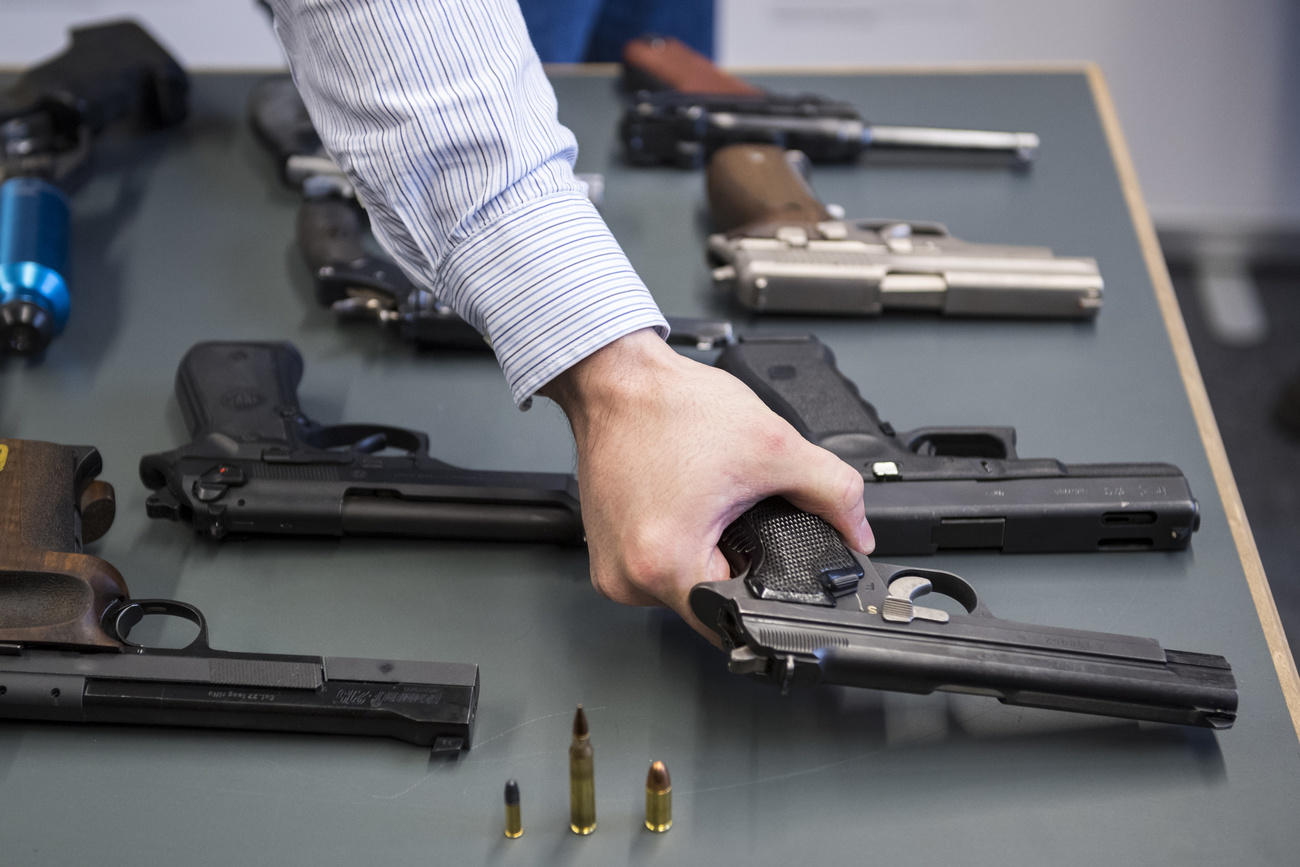Swiss rules on mercenaries – gold standard abroad, flawed at home

United Nations experts welcome Switzerland's international efforts to regulate private military and security companies operating abroad but noted that domestically the country could do better. In particular, the experts called for the harmonisation of cantonal regulations.
The UN Working Group on the use of mercenariesExternal link concluded a five-day visit to Switzerland on Friday during which its members discussed Swiss policy on mercenaryism, private military companies and security companies.
The three members of the group presented their preliminary observations on Friday to journalists in the Swiss capital, Bern. They praised Switzerland’s international efforts to regulate private military and security companies operating abroad.
A leading role abroad
The experts recalled the central role played by Switzerland in the development of two initiatives setting standards for private military and security companies, namely The Montreux Document (2008)External link and the International Code of Conduct for Private Security Service ProvidersExternal link (2010).
They urged Switzerland to capitalise on its position as chair and co-chair of these bodies in 2019 to promote higher standards.
The working group also welcomed the new federal law on private security services provided abroad, which entered into force in 2015. With this text, “Switzerland has shown a real willingness to develop good human rights practices in the field of private security,” said Sorcha MacLeod, one of the group’s members.
Domestic shortcomings
Domestically, however, Switzerland can do better. The working group expressed concern that there are no harmonised regulations at national level governing the activities of companies providing private security services in Switzerland. There are even cantons that do not have any specific regulations for this type of activity.
This is especially worrying as the private security sector is booming. With around 23,000 people working in this field in Switzerland, private providers outnumber the police force, which stands at 18,600 officers, noted Lilian Bobea, another expert.
Moreover, private providers perform tasks traditionally performed by public authorities, such as transporting prisoners or securing centres for asylum seekers.
While recognizing the importance of cantonal autonomy, the working group recommends the development of harmonised rules at the federal level. The latter should maintain existing standards, including the Concordat on security companies adopted by the French-speaking cantons.
The working group will present its final conclusions and recommendations in a comprehensive report to the UN Human Rights Council in September 2020.

In compliance with the JTI standards
More: SWI swissinfo.ch certified by the Journalism Trust Initiative



You can find an overview of ongoing debates with our journalists here. Please join us!
If you want to start a conversation about a topic raised in this article or want to report factual errors, email us at english@swissinfo.ch.